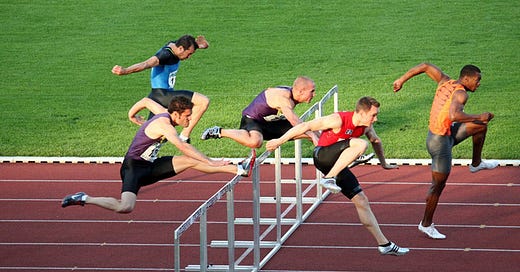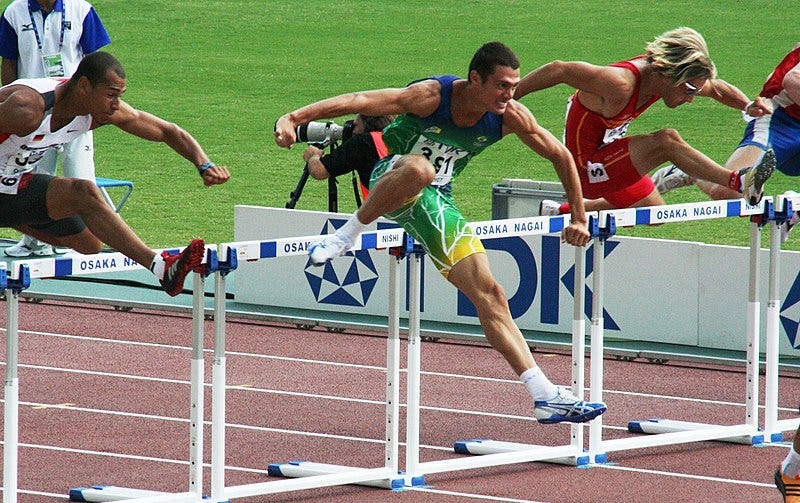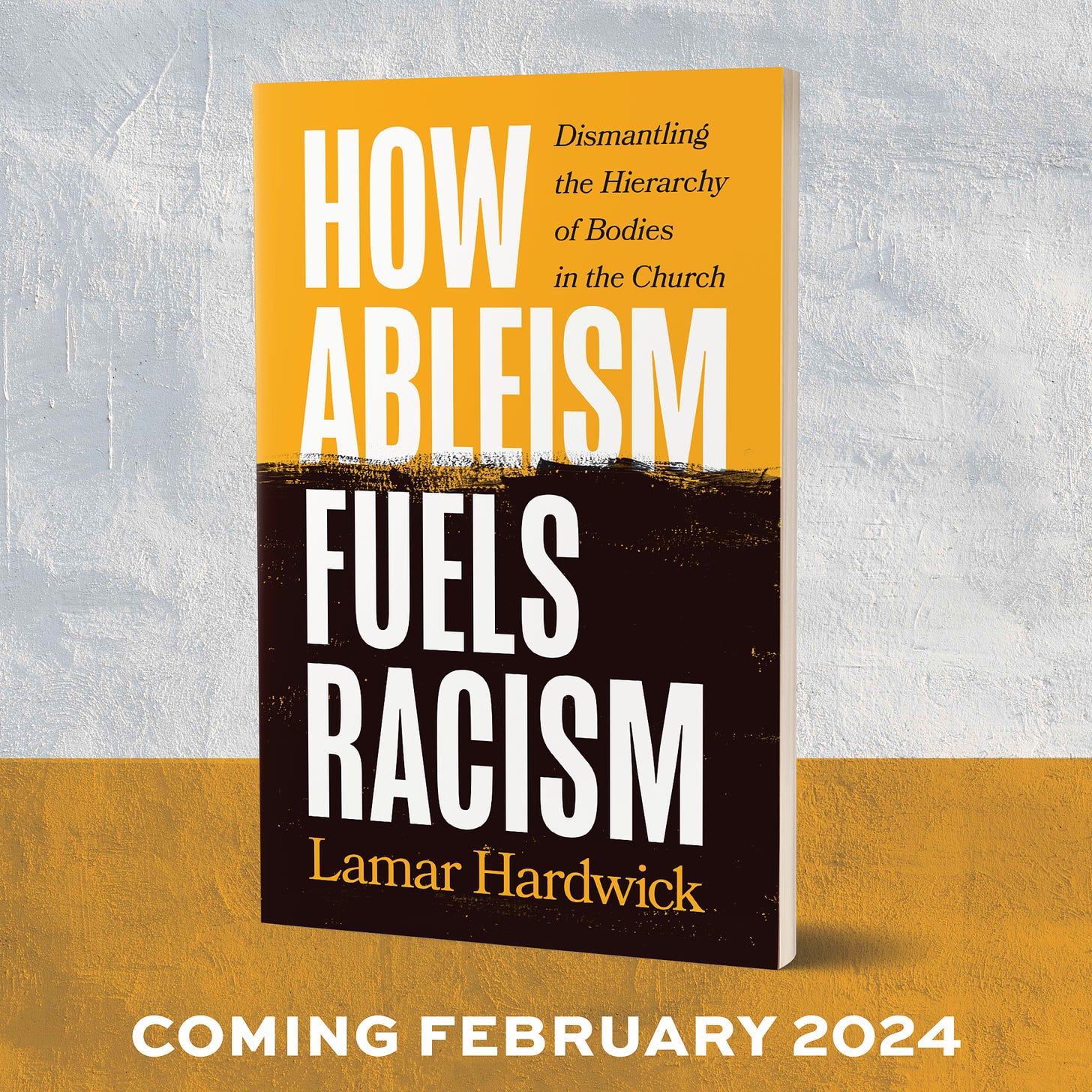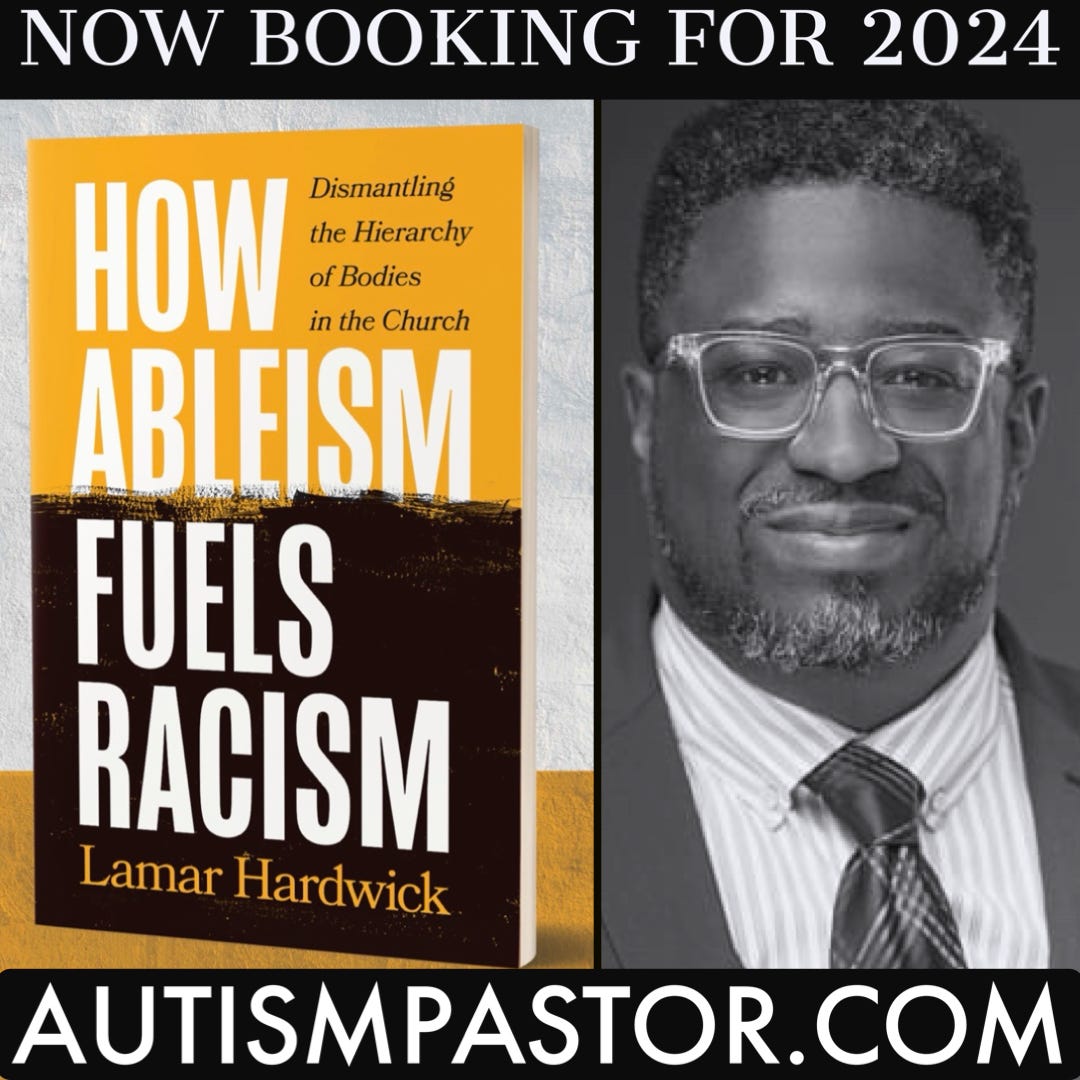Six Suggestions for Surviving Holiday Gatherings
Autism, Disability, and protecting yourself, children, and loved ones this holiday season.
I love sports. I grew up playing soccer, basketball, football, and for a brief moment in history, I even ran track. Some of the greatest lessons I learned didn’t happen on the basketball court or the football field, some of the best lessons I learned happened on the track. Once, in an effort to explain to someone how autism spectrum disorder impacts how I socialize with others, I gave an analogy that social interaction is like running sprints for me. I can do it, but not for long periods of time. As helpful as that analogy was at the time, I must confess that I lied. Socializing is not like running 100-meter sprints, socializing is like running the 100-meter hurdles.
Since being diagnosed as autistic in 2014, I am learning that most people don’t have the opportunity to see my intense internal struggle with navigating social situations. If you want to really see me struggle, however, put me in a room full of family and friends I see only a few times a year. Just the thought of it scares me to death, so over the last year I’ve learned to take a few lessons from the track, and turn them into strategies for handling the holiday hurdles.
1. Support:
One of the first keys to being able to run well is to have good shoes. A few years ago I tore my right Achilles tendon while playing basketball. Following my surgery, my doctor made me purchase athletic shoes that provided me with the proper support. I’ve learned that living on the autism spectrum requires me to have support.
I can’t run my race without support.
My wife is committed to helping me navigate social situations by helping me feel safe, feeding me cues and clues, and recognizing when I am beginning to feel overwhelmed and stepping in to give me some relief. Before you head into the hectic holiday hurdle race, make sure you have the support you need.
2. Stretch:
Anyone who has ever exercised knows that stretching before running is extremely important. Stretching makes you more flexible and can improve your performance as well as prepare your muscles for rigorous activity. Life on the spectrum often means that holiday socializing can be scary, but try to warm up to the idea a few days in advance. I like to spend time mentally preparing myself to interact with people. Spend time alone, do things you enjoy with no interruptions, and then slowly warm up to being more social.
3. Steps:
If you have ever watched a 100 meter hurdle race, then you’ve probably noticed the runners on the track warming up by jumping a few of the hurdles before the race actually begins. What they are doing is actually creating a system for maximizing their steps. Jumping hurdles requires a system. Identifying your “lead” leg is crucial because it is the leg that goes over the hurdle first. Here’s my point, jumping the holiday hurdles is a little easier when you have a system. Determine your “lead” leg by working on your script in your head. It doesn’t hurt to have a few ideas of topics of conversations that you can comfortably engage for a few moments.
When you’re jumping hurdles every step is important, so spend time preparing yourself for the occasion by doing as much as you can to find out who will be there, what you will be expected to do, and how long the gathering will last.
4. Start:
Running a great race means getting off to a great start. When I consider that I will be spending time in large social settings, I try to get off to the best start possible. This means that I try to start my day off with something positive, and when I actually arrive at the large social gathering, I try to start of the time with as much interaction as I can. I know myself well enough to know that after an hour, I don’t feel like socializing, but if I get off to a good start by engaging people at the beginning, I feel more secure and others feel they had an opportunity to spend time with me. This works great for me because after a big holiday cookout most people end up sleeping anyway, so I don’t feel as awkward when I need to slip away and be alone.
5. Stride:
Jumping hurdles takes a ton of energy, so what you do in between hurdles is very important. A good hurdler has a decent stride in between hurdles. A stride is a long step, so depending on your personality and social capacity, determine a pace that works well for you, but by all means take as long as you need in between hurdles. Don’t rush from one social activity right into the next. A good pace can actually protect you in the long run.
6. Celebrate:
Ok, so this one doesn’t start with “S”, but it does make for a good ending. Running hurdles requires a good start, but it also requires an excellent finish. The holiday gatherings can be filled with sensory overload, social anxiety, and mental and emotional fatigue so have a plan for how you will finish the race. Have an exit strategy. Life on the spectrum isn’t easy, and lots of people won’t understand why you just can’t stay for another hour, but no matter how things turn out, learn to celebrate the fact that you ran your race and you ran it well.
Stay Strong-
#AutismPastor









So good. It is also helpful for people who suffer from stimuli, after COVID, or people who are introverted. Thank you. It is actually so simple and therefore so brilliant and easy to understand.